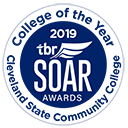Lawyer
Lawyer
23-1011.00
Median wages
$105,890
Represent clients in criminal and civil litigation and other legal proceedings, draw up legal documents, or manage or advise clients on legal transactions. May specialize in a single area or may practice broadly in many areas of law.
- Analyze the probable outcomes of cases, using knowledge of legal precedents.

- Advise clients concerning business transactions, claim liability, advisability of prosecuting or defending lawsuits, or legal rights and obligations.

- Select jurors, argue motions, meet with judges, and question witnesses during the course of a trial.

- Interpret laws, rulings and regulations for individuals and businesses.

- Present evidence to defend clients or prosecute defendants in criminal or civil litigation.

- Represent clients in court or before government agencies.

- Present and summarize cases to judges and juries.

- Study Constitution, statutes, decisions, regulations, and ordinances of quasi-judicial bodies to determine ramifications for cases.

- Prepare, draft, and review legal documents, such as wills, deeds, patent applications, mortgages, leases, and contracts.

- Negotiate settlements of civil disputes.

- Supervise legal assistants.

- Examine legal data to determine advisability of defending or prosecuting lawsuit.

- Evaluate findings and develop strategies and arguments in preparation for presentation of cases.

- Gather evidence to formulate defense or to initiate legal actions, by such means as interviewing clients and witnesses to ascertain the facts of a case.

- Prepare legal briefs and opinions, and file appeals in state and federal courts of appeal.

- Search for and examine public and other legal records to write opinions or establish ownership.

- Confer with colleagues with specialties in appropriate areas of legal issue to establish and verify bases for legal proceedings.

- Perform administrative and management functions related to the practice of law.

- Work in environmental law, representing public interest groups, waste disposal companies, or construction firms in their dealings with state and federal agencies.

- Probate wills and represent and advise executors and administrators of estates.

- Act as agent, trustee, guardian, or executor for businesses or individuals.

- Help develop federal and state programs, draft and interpret laws and legislation, and establish enforcement procedures.
- Accounting software — BQE Software BillQuick; Fund accounting software
 ; TimePro Legal Software TimePro; TimeSolv Legal
; TimePro Legal Software TimePro; TimeSolv Legal
- Analytical or scientific software — Convex FactLogic; Direct Hit Systems THREADS

- Calendar and scheduling software — Compugov DocketView; CompuLaw Vision; Levare Center Court

- Content workflow software — I-many Contract Management

- Data base user interface and query software — Abacus Data Systems AbacusLaw; LexisNexis CaseMap; Thomson Elite ProLaw; WorthMORE Software CaseWORTH

- Data mining software — Google Analytics


- Desktop publishing software — Microsoft Publisher


- Document management software — Adobe Systems Adobe Acrobat
 ; Microsoft Office SharePoint Server MOSS; Thomson West Cowles Estate Practice System; WealthCounsel WealthDocs
; Microsoft Office SharePoint Server MOSS; Thomson West Cowles Estate Practice System; WealthCounsel WealthDocs
- Electronic mail software — Catalyst Repository Systems CatalystDR; Catalyst Repository Systems CatalystXE; Microsoft Outlook
 ; Novell GroupWise
; Novell GroupWise
- Enterprise resource planning ERP software
 — ERP software; SAP
— ERP software; SAP 

- Information retrieval or search software — Fastcase; LexisNexis Shepard's Citations Service; Thomson West WestlawPRO; Wolters Kluwer Loislaw

- Internet browser software — Web browser software

- Office suite software — Corel WordPerfect; Microsoft Office

- Presentation software — IDEA TrialPro; Microsoft PowerPoint
 ; Verdict Systems Sanction; Visionary Legal Technologies Visionary Professional
; Verdict Systems Sanction; Visionary Legal Technologies Visionary Professional
- Project management software — Canyon Solutions Jcats; Customer Expressions i-Sight; Legal Files Software; Virtual Case Management

- Spreadsheet software — Microsoft Excel


- Tax preparation software — Tax software


- Time accounting software — Equative TimeLedger; Sage Timeslips

- Word processing software — Microsoft Word; ProCAT Denoto

![]() Hot Technology — a technology requirement frequently included in employer job postings.
Hot Technology — a technology requirement frequently included in employer job postings.
- Active Listening — Giving full attention to what other people are saying, taking time to understand the points being made, asking questions as appropriate, and not interrupting at inappropriate times.

- Speaking — Talking to others to convey information effectively.

- Reading Comprehension — Understanding written sentences and paragraphs in work related documents.

- Critical Thinking — Using logic and reasoning to identify the strengths and weaknesses of alternative solutions, conclusions or approaches to problems.

- Complex Problem Solving — Identifying complex problems and reviewing related information to develop and evaluate options and implement solutions.

- Judgment and Decision Making — Considering the relative costs and benefits of potential actions to choose the most appropriate one.

- Negotiation — Bringing others together and trying to reconcile differences.

- Persuasion — Persuading others to change their minds or behavior.

- Writing — Communicating effectively in writing as appropriate for the needs of the audience.

- Active Learning — Understanding the implications of new information for both current and future problem-solving and decision-making.

- Time Management — Managing one's own time and the time of others.

- Social Perceptiveness — Being aware of others' reactions and understanding why they react as they do.

- Monitoring — Monitoring/Assessing performance of yourself, other individuals, or organizations to make improvements or take corrective action.

- Systems Analysis — Determining how a system should work and how changes in conditions, operations, and the environment will affect outcomes.

- Coordination — Adjusting actions in relation to others' actions.

- Instructing — Teaching others how to do something.

- Service Orientation — Actively looking for ways to help people.

- Learning Strategies — Selecting and using training/instructional methods and procedures appropriate for the situation when learning or teaching new things.

- Systems Evaluation — Identifying measures or indicators of system performance and the actions needed to improve or correct performance, relative to the goals of the system.










